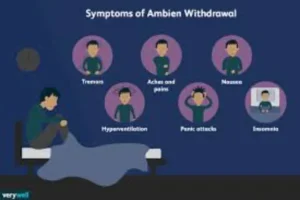Common Factors Behind Mental Disorders

Chronic Stress
Cortisol is known as the “stress hormone” and is a part of the fight-or-flight response.” Adrenaline is a hormone that also takes part in this response system. These hormones are essential when danger suddenly presents itself because they prepare you so that you can either fight an aggressor or flee.
Once the danger passes, cortisol and adrenaline diminish. When you are under chronic stress, that is, stress that is present for a much longer period of time, the fight-or-flight response does not turn off. When someone experiences longer periods of high cortisol and adrenaline levels, they are at risk of developing depression and anxiety.
Lack of Sleep
If someone is experiencing a mental health disorder, the lack of sleep can make it worse. When people have not been diagnosed with depression, anxiety, or suicidal ideation, the lack of sleep can cause them to develop these conditions.
Poor Diet
A poor diet is a diet full of sugar and processed foods. Eating these foods leads to inflammation, and inflammation is responsible for creating mental disorders, such as anxiety and depression.
Genetic Predisposition
Scientists have heavily studied the genetic component of mental disorders. Several such studies demonstrated that there are mutations and genetic variations of some genes that increase a person’s possibility of developing a mental health disorder. Two particular variations lead to attention deficit hyperactivity disorder, autism, schizophrenia, bipolar disorder, and major depression.
Trauma or Unresolved Emotional Pain
If you survived trauma or have unresolved emotional pain, you are more likely to develop mental health disorders, such as post-traumatic stress disorder, anxiety disorders, and depression. Unresolved trauma is also the reason that people live with chronic stress, and this leads to the effects described above.
Substance Abuse
Chronic stress leads to elevated levels of cortisol, and this increases anxiety. When this occurs, many people begin to crave substances as a way to cope with the negative effects they are feeling.
Hormonal Imbalances
Hormonal imbalances significantly impact mental health. Fluctuations in hormones lead to several conditions, including mood disorders, anxiety, and depression.
Low HGH and Your Mental Health
Brain Fog
People with low levels of HGH often experience difficulty concentrating. They begin to feel fatigued, and this leads to reduced cognitive function and focus. Some people also notice that they forget things that they just recently learned, and they feel as if they are mentally drained.
Low Mood and Mild Depression
Adult-onset human growth hormone deficiency is linked to depression and/or anxiety.
Constant Fatigue
As the body does not produce as much growth hormone as it did in its younger years, the person begins to feel fatigued. They may also have an increase in body fat, a decrease in bone density, and reduced muscle strength.
Poor Concentration and Focus
Poor concentration and focus are symptoms that many people with low growth hormone levels experience.
Reduced Motivation or Drive
Several studies have demonstrated that low motivation and drive are common symptoms of low HGH levels.
Some people with confirmed low HGH levels choose to restore balance with HGH injections under the care of a hormone specialist. These injections are designed to replace what the body no longer produces in sufficient amounts.
People often report the following afterward:
- Improved mood
- Clearer thinking
- Better sleep
- Reduced anxiety
- More energy and motivation
Natural Ways to Support HGH and Mental Health
Exercise Regularly (especially resistance training)
Exercise stimulates the release of growth hormone-releasing hormone or GHRH, and this stimulates the release of human growth hormone.
Get 7-9 Hours of Sleep
During deep sleep or slow-wave sleep, the body releases 75% of the human growth hormone that it releases each day. When HGH is being released, it restores and rebuilds your muscles.
Eat Clean, Whole Foods an,d Cut Back on Sugar
Excess sugar intake increases insulin levels, and high insulin levels suppress HGH production. Consuming nutrient-rich, whole foods helps the body regulate insulin, and this promotes the healthy production of human growth hormone.
Stay Hydrated – Your Brain Needs It
The brain is approximately 60% water. It needs you to replenish this water in order for its cells to function properly. Otherwise, you may begin to experience cognitive problems.
Get Sun Exposure for Vitamin D
Exposing your skin to the sun causes it to produce vitamin D. Fair people need to spend between 10 and 30 minutes a day, and dark-hued people need about 20 to 90 minutes.
To find out whether or not HGH supplementation would help you with your complaints, contact us at Medzone Clinic.







